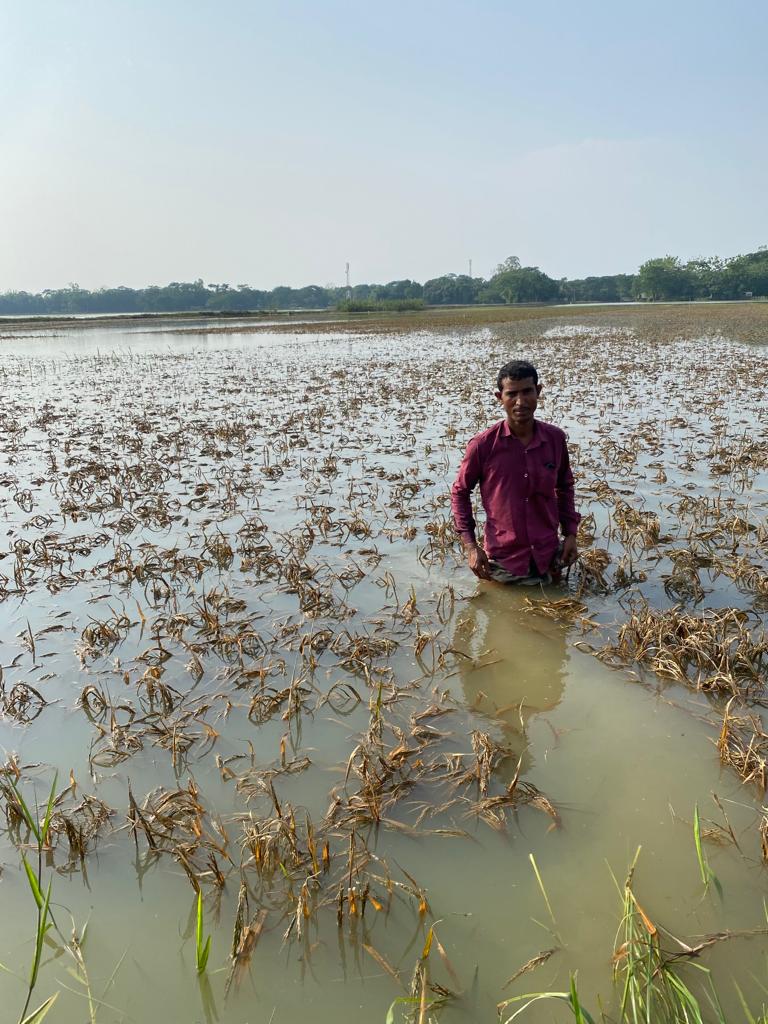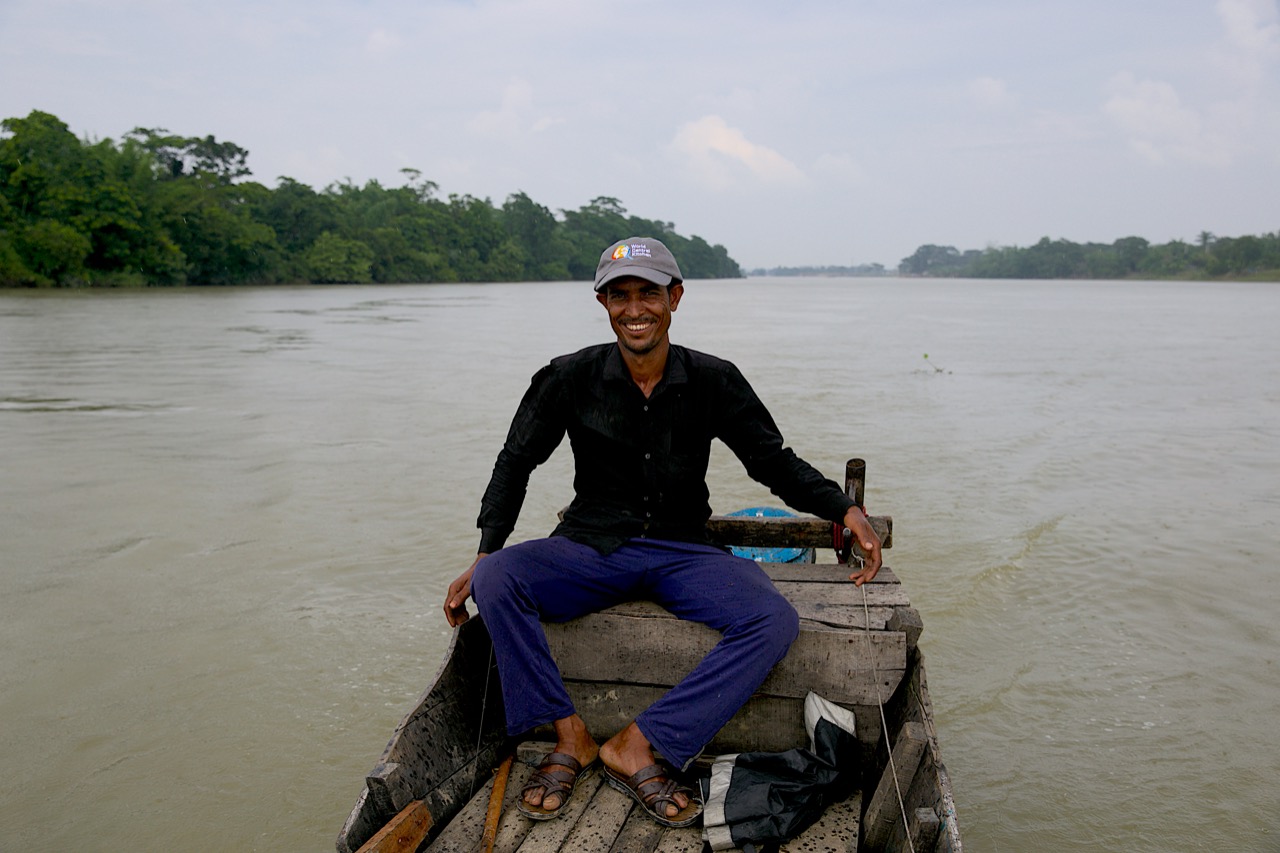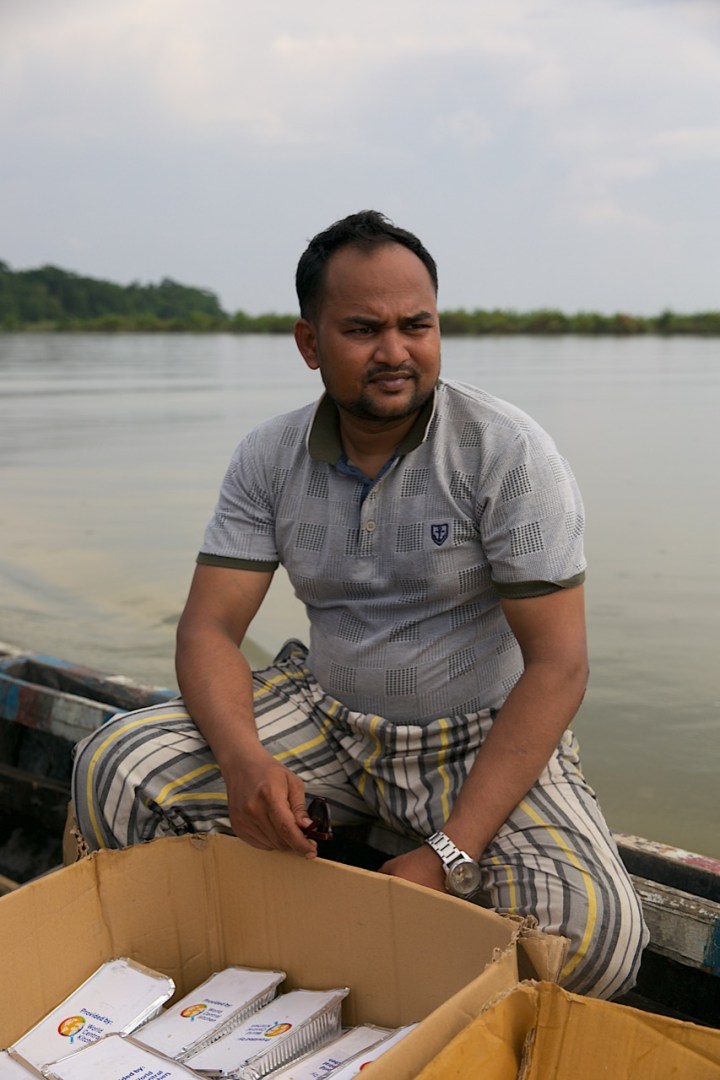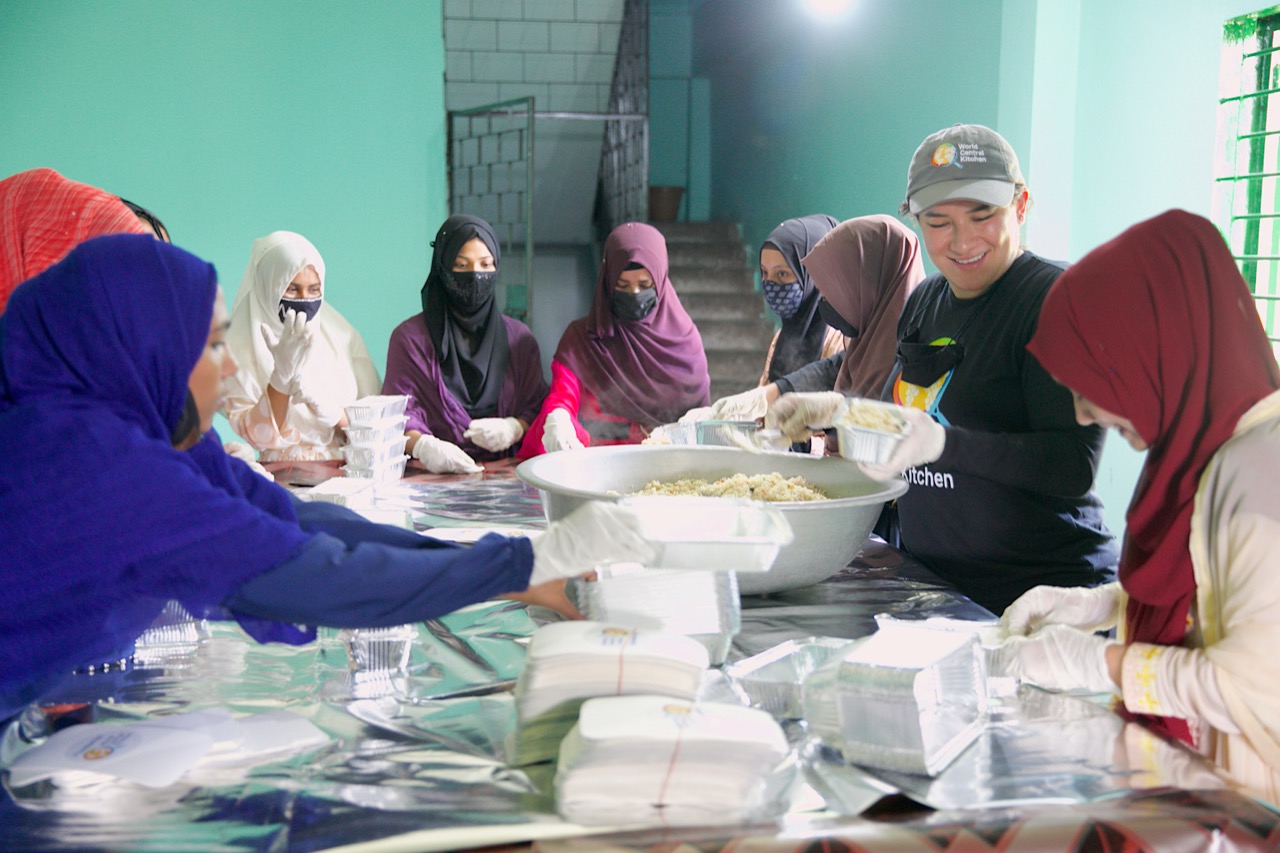
Weeks ahead of Bangladesh’s annual monsoon season, heavy rainfall hit the northeast portion of the country impacting over four million people. The floods that followed are the worst to devastate the region in nearly two decades, submerging more than half of the city of Sylhet.
Damaged homes and crops left people unable to cook and created food shortages—more than 1.5 million children are now at an increased risk of malnutrition. Supporting a local kitchen, we began by serving thousands of hot meals to families in need. Our next phase of support was providing food kits—assembled and delivered with the help of local partners—to 15,000 households.
Low-lying areas in the northeast portion of Bangladesh have been vulnerable to flash floods, however, it is believed they are becoming more intense and frequent due to the changing climate. The country as a whole is said to be amongst the most affected by extreme weather events within the past two decades.
Mr. Hazir Ali
Mr. Hazir Ali
Mr. Hazir Ali is a fish trader. His village was severely devastated by the floods. As a local boatman, Mr. Hazir Ali helped the WCK team reach impacted communities.
Mr. Obayedullah Ishak
Mr. Obayedullah Ishak
Mr. Obayedullah Ishak is the Chairman of a local government council in Sylhet. While helping the team deliver meals to communities in need, he showed us the extensive damage to rice paddies, summer vegetable gardens, and jute fields. Mr. Obayedullah is very concerned about food security as food prices are rising and the area’s remote location means traveling for food which is costly.
Lamakazi
Lamakazi
Our response began by cooking and delivering hot meals to families in need. Helping us package the meals with a great sense of humor were a group of local women from the Lamakazi region in Sylhet.
By the numbers
Equivalent Meals Provided
via food packets


